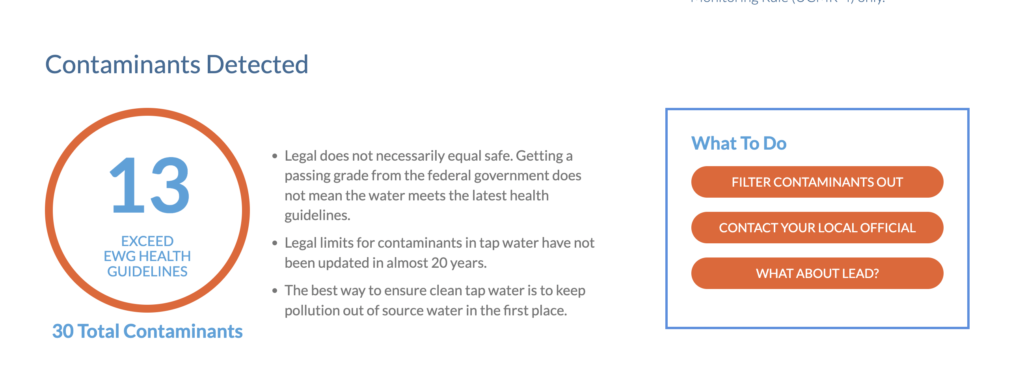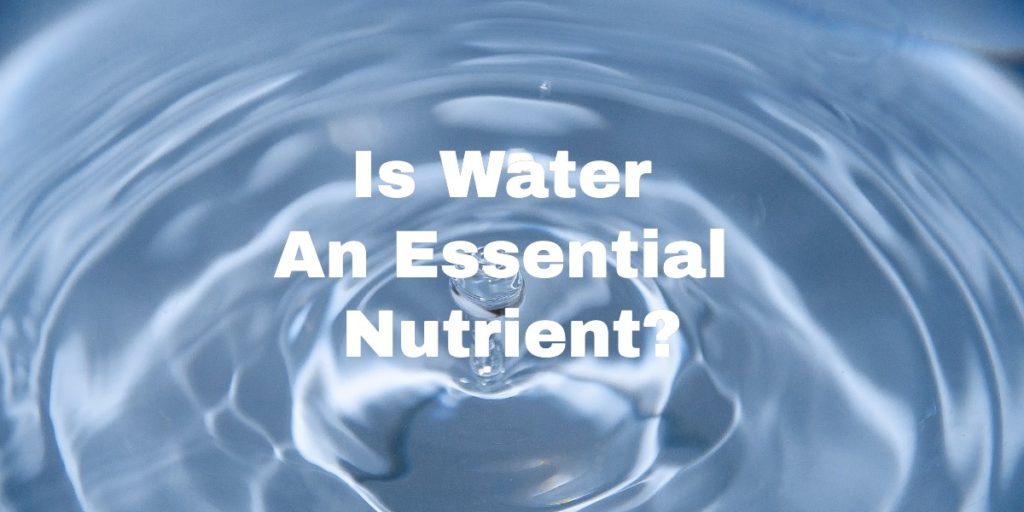The Essential Role of Water for Health and Performance
This year I wanted to concentrate on the quality of the water I was drinking and hydration in general. Unfortunately, it always takes a back seat to other things and I never seem to get around to it. Then I got an email from Andrew Huberman, Ph.D. walking through water and hydration with some really practical information. I thought it was a good starting place and I wrote this article focusing on the question of is water an essential nutrient. I think we know the answer to that, but I then used the article to compare what Huberman says to notes I had taken over from articles and interviews of Robert Slovak, Dr. Gerald H. Pollack, and other water experts.
Understanding water’s physical and chemical properties, how to optimize hydration, purify tap water, and adjust the type of water consumed can substantially improve our well-being. This blog post offers insights into these important aspects of water.
Is Water An Essential Nutrient?
Yes, water is an essential nutrient and accounts for approximately 60-80% of human cells and tissues. It plays a foundational role in our overall health, including cellular function, and mental, and physical performance.
The Cellular Connection with Water
Healthy cellular function relies heavily on water. Water aids in the buildup and breakdown of cellular components orchestrates chemical reactions, assists in protein structure and function, and acts as a solvent (dissolving agent). Moreover, it can function as an antioxidant, protecting cells from damage by free radicals.
Optimal Hydration: An Everyday Necessity
How much water should I drink a day?
Even mild dehydration can have detrimental effects on physical performance, alertness, and cognitive focus, leading to ‘brain fog.’ Therefore, proper hydration is important. According to Huberman, aim to consume approximately 8 oz (237 mL) of fluid per hour for the first 10 hours of your day. You don’t have to drink 8 oz every hour but try to consume approximately 80 oz of water during the waking hours of your day to offset dehydration.
Why focus on the first 10 hours after waking? Our body’s circadian clock, which regulates sleep and wakefulness patterns, significantly controls kidney and gut cells through the hormone vasopressin. Kidney function is most efficient within the first 10 hours after waking, making it the ideal period for fluid intake. Nighttime hydration should be moderated to avoid frequent urination disrupting sleep. I am trying to change my habits to incorporate this (especially avoiding late-night urination). But I need to kick my Diet Coke habit which takes up 32 ounces of my morning liquid intake (I am sure some of it counts as water intake).
Hydration for Physical Activity and Different Environments
Exercise, excess heat, sweating, dry environments, and caffeine may increase your hydration needs beyond the baseline of 80 oz in the first 10 hours of waking. The Galpin Equation is a useful guideline for additional fluid consumption during exercise and in hot or dry environments. If consuming caffeine, increase fluid intake by 2:1 to counterbalance its diuretic effect.
Bear in mind, thirst is a delayed indicator of hydration status. Hence, it’s important to preemptively plan your hydration strategy, particularly in extreme weather or high-intensity activities.
Evaluating and Filtering Tap Water
Standard municipal filtration systems, due to their scale and limitations, often leave contaminants in tap water, which can negatively impact health. Contaminants can include disinfection byproducts (DBPs), endocrine disruptors that affect fertility, high levels of fluoride that disrupt thyroid function, and in some instances, lead.
Fortunately, there are resources to evaluate your tap water’s quality. Once you know your tap water’s contents, filtering can be an effective way to remove harmful contaminants. Filter options range from inexpensive pitcher filters to more advanced whole-house water filtration systems, depending on your budget and needs. Here is a screenshot of Omaha area water contaminants.

Huberman Water Filter
These filters were included in Huberman’s email, but he went to great lengths to say he has no financial relationship with any of these companies.
| Water Filter Type | Estimated Cost | Description |
|---|---|---|
| Pitcher Filters that include fluoride filtration (e.g., ClearlyFiltered Pitcher) | <$100 | These are small, portable pitchers with built-in filters that can remove contaminants, including fluoride, from your tap water. They are easy to use and require no installation, but they do require regular replacement of the filter. |
| Countertop Filters for larger water volumes (e.g., Berkey Filters) | ~$400 | These larger filters are designed to sit on your countertop and filter larger volumes of water. They tend to have a more complex filtration system than pitcher filters, often removing a broader range of contaminants. |
| Whole House Water Filters (e.g., Aquasana Filters) | $800+ | These systems are installed into your home’s plumbing to filter all the water entering your home. They are more expensive but provide comprehensive water filtration throughout your home. |
| Zero-cost option | $0 | This is a simple method where you rest 1-5 gallons of water, uncapped, at room temperature for ~1 day. The sediment will fall to the bottom, and you can pour off the top two-thirds for drinking. This method doesn’t filter contaminants but can help with some types of particulate matter. |
Everydrop Water Filter 4 From Whirlpool
This is the Everydrop water filter we have to replace on our refrigerator about every 6 months. It is built right into the refrigerator so we don’t have much choice.
This water filter promises to filter out impurities and provide clean and fresh-tasting water straight from your refrigerator. Here’s a brief summary:
Removal of Contaminants: It is certified to reduce 23 contaminants, including pharmaceuticals, waterborne parasites, lead, and pesticides, thus ensuring healthier, tastier water and ice.
Capacity: It has a capacity of 200 gallons (757 liters), so it should last about 6 months under normal usage.
Design: This filter is designed to fit various refrigerator models from Whirlpool, Maytag, KitchenAid, JennAir, and Amana that have a long, narrow filter installed in the ceiling of the fridge.
Certifications: The EveryDrop Water Filter 4 is NSF certified, which ensures that it meets the strict standards for public health protection.
Ease of Installation: The filter is easy to install with a simple twist and lock design.
Understanding Different Types of Water
The concentration profile of ions and filtration processes in tap water can create different types of water with varying benefits and potential drawbacks. These types include hard water, distilled or double-distilled water, reverse osmosis water, hydrogen-enriched water, and structured water.
- Hard Water: This type of water has higher concentrations of magnesium and calcium, which makes it more alkaline. Although alkalinity improves absorption, it’s essential to note that this doesn’t alter the pH of your tissues. Some studies suggest that more alkaline water can reduce inflammation, lower blood pressure, and reduce risks of cardiovascular disease.
- Distilled or Double-distilled Water: This process involves removing calcium and magnesium from the water. While it creates very pure water, it also eliminates the health benefits associated with these minerals. Therefore, it’s generally not recommended for regular consumption.
- Reverse Osmosis Water: This process involves filtering water multiple times to remove a vast majority of contaminants, resulting in very clean water. However, this type of water can lack key minerals. Although it’s safe to drink, it’s typically more expensive than other types of purified water.
- Hydrogen-enriched, Electrolyzed-reduced, Deuterium-depleted Water: This type of water typically has a higher pH than normal tap water. While it hasn’t been extensively studied, at least one study showed inflammation reduction and improvement in other health metrics, likely due to improved hydration of cells. If desired, you can make this type of water at home by dissolving a molecular hydrogen tablet (which contains a specific type of magnesium) in a glass of water for 5-15 minutes. Note: If your tap water already has a high magnesium concentration, the water is sufficiently alkaline.
- Structured Water: This term refers to water that has undergone a change in its configuration in the presence of certain solids or liquids. This change causes “like” charges (i.e., positive/positive) to attract and form stronger bonds. Despite theories suggesting structured water has additional health benefits, there is currently no scientific evidence supporting these claims. However, it’s a growing area of research with varying opinions. This is the type of water I have been most interested in but, based on Huberman’s analysis the science may not be there yet.
While each type has unique characteristics, the body tightly regulates tissue pH, contrary to some water brands’ claims. Moreover, despite the controversy and strong opinions surrounding structured water, there is currently insufficient scientific evidence supporting its health benefits. I currently take Quinton Isotonic water nightly which is yet another type of water.
Conclusion Is Water An Essential Nutrient
By understanding the role of water in our bodies and making conscious choices about the water we consume, we can improve our overall health and daily performance. Whether adjusting your hydration strategy, filtering tap water, or selecting a specific type of water, each decision matters for your well-being. I hope this post makes it clear that water is an essential nutrient.

.
Troy Wallace
Troy Wallace is Certified Basketball Speed Specialist and shares his experiences in trying to stay as healthy as possible to stay on the court. He is active in coaching youth basketball in YMCA, Team Work Sports Nebraska, and, currently, in the Jr. Warriors program in Omaha, NE. Visit Troy's Full Author Bio Page or email him directly.
Meaningful conversations happening daily about training, recovery, and injury-specific rehabilitation as well as sport-specific discussions on playing, coaching and refereeing your favorite sport. We welcome experts and those with curious minds seeking answers.
Join The Stay On The Court Community!